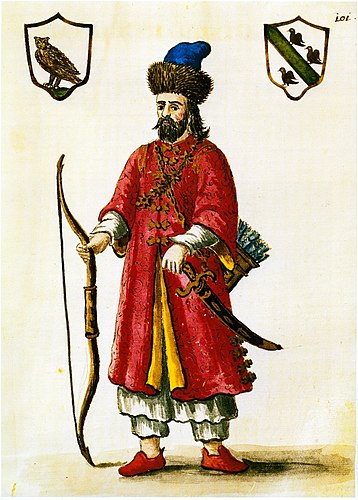1.
The militant Muslim is the person who beheads the infidel, while the moderate Muslim holds the feet of the victim.
Marco Polo
The radical Muslim is the one who decapitates the unbeliever, while the peaceful Muslim steadies the feet of the casualty.
2.
I speak and speak, [...] but the listener retains only the words he is expecting. [...] It is not the voice that commands the story: it is the ear.
Marco Polo
I articulate and articulate, [...] yet the auditor acquires just the expressions he is anticipating. [...] It is not the vocalization that administers the narrative: it is the aural organ.
3.
I did not write half of what I saw, for I knew I would not be believed
Marco Polo
4.
I have not told the half of what I saw.
Marco Polo
5.
The law which their prophet Mohamed has given to muslims is that any harm done to any one who does not accept their law and any appropriation of his goods, is no sin at all.
Marco Polo
6.
Without stones there is no arch.
Marco Polo
7.
My heart beats as much as I can breathe.
Marco Polo
8.
The true sweetness of wine is one flavor
Marco Polo
9.
I believe it was God's will that we should come back, so that men might know the things that are in the world, since, as we have said in the first chapter of this book, no other man, Christian or Saracen, Mongol or pagan, has explored so much of the world as Messer Marco, son of Messer Niccolo Polo, great and noble citizen of the city of Venice.
Marco Polo
10.
And when the Old Man wished to kill someone, he would take him and say: "Go and do this thing. I do this because I want to make you return to paradise." And the assassins go and perform the deed willingly.
Marco Polo
11.
If you put together all the Christians in the world, with their Emperors and their Kings, the whole of these Christians, - aye, and throw in the Saracens to boot, - would not have such power, or be able to do so much as this Kublai, who is Lord of all the Tartars in the world.
Marco Polo
12.
One of these nuts is a meal for a man, both meat and drink.
Marco Polo
13.
To the north of Armenia lies Zorzania Georgia, near the confines of which there is a fountain of oil which discharges so great a quantity as to furnish loading for many camels. The use made of it is not for the purpose of food, but as an unguent for the cure of cutaneous distempers in men and cattle, as well as other complaints, and it is also good for burning. In the surrounding country no other oil is used in their lamps, and people come from distant parts to procure it.
Marco Polo

